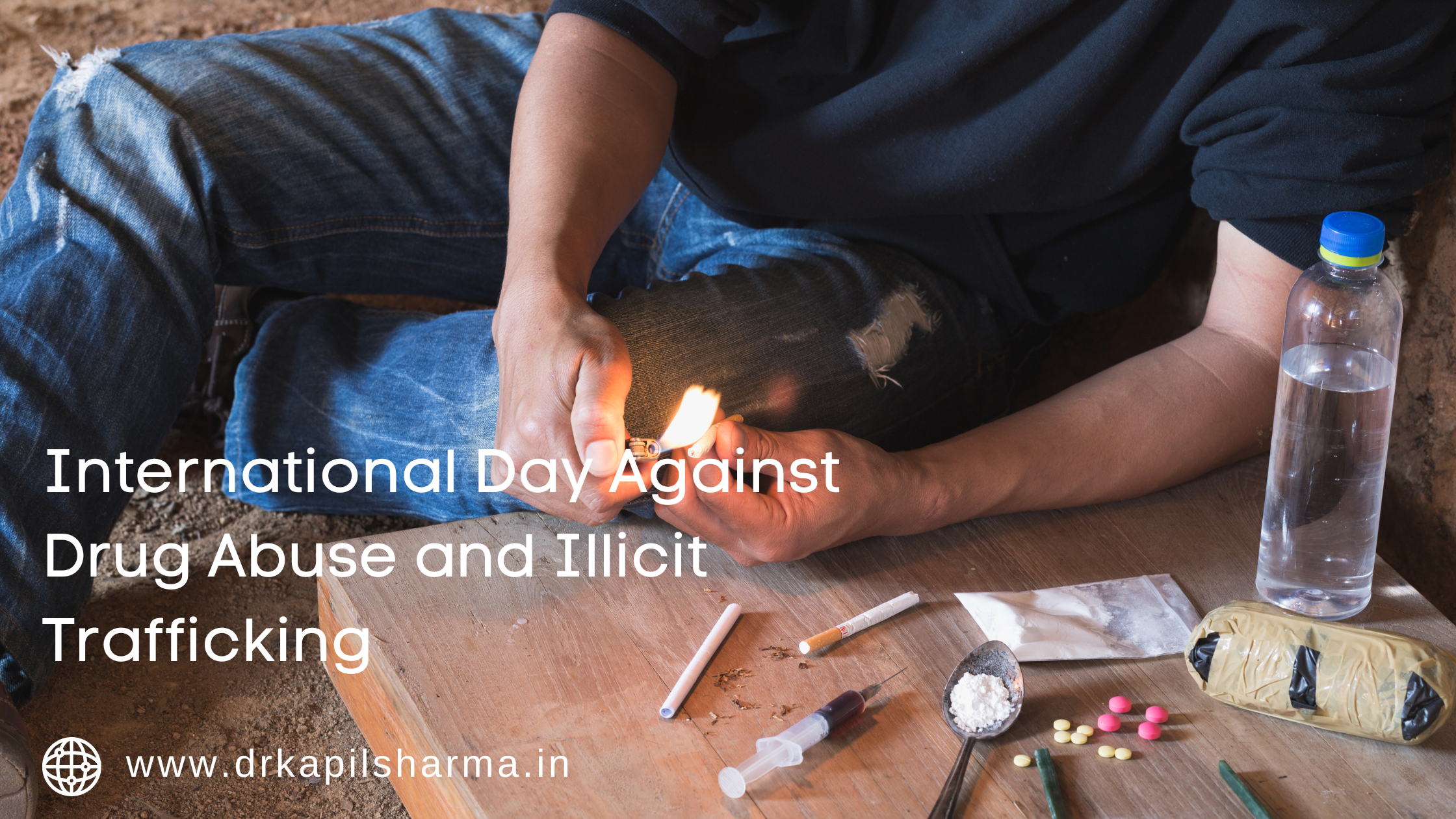
International Day Against Drug Abuse and Illicit Trafficking: Effects of Drugs and Alcohol on Health
The International Day Against Drug Abuse and Illicit Trafficking is observed annually on June 26th. This important day serves as a reminder of the global efforts to combat drug abuse and the illicit trafficking of drugs. One of the critical aspects of this issue is understanding the detrimental effects that drugs and alcohol can have on an individual’s health. Substance abuse not only harms the user but also impacts their families, communities, and society as a whole. In this article, we will delve into the profound effects that drugs and alcohol can have on one’s health.
Physical Health Effects:
- Organ Damage: Substance abuse, especially prolonged and excessive alcohol consumption, can severely damage vital organs such as the liver, kidneys, heart, and lungs. Chronic alcohol abuse can lead to liver cirrhosis, alcoholic hepatitis, and an increased risk of cardiovascular diseases.
- Weakened Immune System: Drug abuse weakens the immune system, making individuals more susceptible to infections, diseases, and even certain types of cancers. Substance abuse can hinder the body’s ability to fight off pathogens, leading to frequent illnesses and compromised overall health.
- Respiratory Issues: The inhalation of illicit drugs such as cocaine, heroin, or methamphetamine can cause respiratory problems. Smoking substances like marijuana or tobacco can lead to chronic bronchitis, lung cancer, and other respiratory ailments.
Mental Health Effects:
- Addiction and Dependence: Drugs and alcohol have addictive properties that can quickly lead to dependence. Substance abuse alters the brain’s reward system, making individuals crave the substances and experience withdrawal symptoms when trying to quit. Addiction can have severe psychological, social, and economic consequences.
- Mental Disorders: Substance abuse is closely associated with the development of mental health disorders. Conditions such as depression, anxiety, psychosis, and personality disorders are more prevalent among individuals struggling with drug or alcohol addiction. Substance abuse can exacerbate existing mental health issues or trigger the onset of new ones.
- Cognitive Impairment: Prolonged substance abuse can impair cognitive function, including memory, attention, decision-making, and problem-solving abilities. Drugs and alcohol disrupt the brain’s neurotransmitters, affecting the communication between neurons and leading to cognitive decline.
Social and Economic Effects:
- Family and Relationship Problems: Substance abuse often strains relationships with family members, friends, and partners. It can lead to increased conflicts, breakdowns in communication, and loss of trust. Families may experience financial hardships due to the cost of drugs or alcohol and the consequences of addiction, such as job loss or legal issues.
- Impaired Work and Academic Performance: Drug and alcohol abuse can significantly impact an individual’s work or academic performance. Frequent absenteeism decreased productivity, and impaired decision-making abilities can jeopardize one’s career or educational opportunities.
- Criminal Involvement and Legal Issues: Substance abuse often leads to illegal activities, such as drug trafficking, theft, or driving under the influence. The involvement in criminal behavior can result in arrests, legal consequences, and a detrimental impact on an individual’s future prospects.
Conclusion:
The International Day Against Drug Abuse and Illicit Trafficking serves as a call to action to address the global issue of substance abuse and illicit drug trafficking. It is crucial to recognize the profound effects that drugs and alcohol can have on physical and mental health, as well as their social and economic consequences. By increasing awareness, promoting prevention programs, and providing support for addiction treatment and recovery, we can work towards creating a healthier, drug-free society for individuals and communities around the world.

